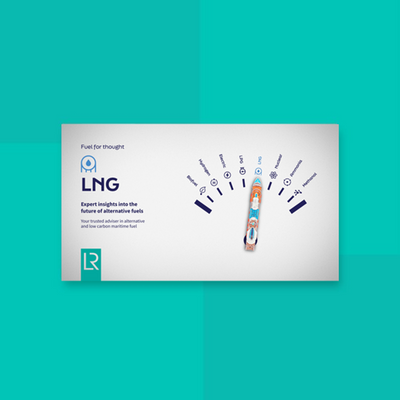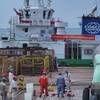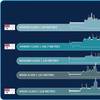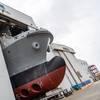LNG Critical to Energy Transition Says Lloyd’s Register
Lloyd’s Register’s (LR) latest Fuel for Thought report states that LNG remains the dominant alternative marine fuel readily available to the shipping industry.
The report highlights LNG’s growing adoption, its cost-effectiveness under tightening emissions regulations and the urgent need to address methane slip to ensure its future as a viable low-carbon fuel.
Fuel for Thought: LNG reveals a significant resurgence in orders for LNG-capable vessels, with an expanding global fleet and rapidly growing bunkering infrastructure. LR’s latest analysis confirms LNG’s strong market position, with 1,381 dual-fuel vessels in service as of December 2024 and a further 849 on order—representing a 61% fleet expansion. Currently, 14% of all vessels on order will have LNG dual-fuel engines installed.
The data confirms LNG’s continued appeal, particularly in segments such as container shipping and car carriers, where its adoption is expanding rapidly: Clarkson Research predicts that the LNG-fuelled fleet (excluding gas carriers) will grow to represent around 24% of the merchant fleet by 2050.
Economic analysis within the report indicates that with IMO mid-term measures within the projected boundaries, LNG remains the most cost-effective fuel choice for foreseeable transition pathways up to 2049. LR’s modelling suggests that LNG-fuelled vessels could generate substantial compliance savings compared to ships running on very low sulphur fuel oil (VLSFO), with additional benefits from regulatory mechanisms such as pooling.
However, the report cautions that LNG’s long-term sustainability depends on tackling methane slip — unburned methane emissions that reduce its overall GHG advantage.
While LNG can provide immediate emissions reductions, its ability to meet stricter targets in the 2040s will depend on advances in cleaner LNG production, particularly through biomethane and synthetic e-LNG, as well as the development of onboard carbon capture technologies.
Panos Mitrou, LR’s Global Gas Segment Director, said: “As regulations emerge that place a real financial impact on greenhouse gas emissions, ship operators are realising that LNG is one of few low carbon fuels to be available immediately, widely, with established safety protocols and at relatively predictable cost.
“There are several opportunities to improve the long-term sustainability of LNG. These are already being addressed and the measures that are being worked on – from cleaner production and supply processes to bio-LNG and onboard carbon capture systems, through the uptake of onboard methane abatement technologies, as well as regulatory acceptance of these improvements – are likely to increase uptake of LNG even further.”
The report also highlights specific examples of innovation, such as the use of high-manganese steel for LNG tanks, which has significantly reduced costs while maintaining cryogenic handling properties. This technology has been successfully implemented in vessels like the Advantage Tankers LLC’s VLCCs, demonstrating the increasing uptake of LNG across diverse vessel segments.
Mehmet Cebeci, Fleet Manager, Advantage Tankers LLC, said: “We believe LNG is the most viable source to comply with both current and upcoming long-term emission regulations, offering a cleaner, more sustainable alternative to traditional marine fuels.”
AET has LNG-powered vessels classed by LR. Nick Potter, President & CEO of AET, said: “LNG is a key component of AET’s Decarbonisation Strategy, providing immediate emissions reductions while we also invest in net-zero carbon solutions. Through our tiered decarbonisation strategy, we are integrating energy efficiency technologies, innovative propulsion systems, and future fuel capabilities, including ammonia, to help meet our 2030 GHG emissions intensity target.
“While LNG is a viable option today, its long-term role will depend on developments in bio-LNG, synthetic LNG, and the commercial and regulatory landscape for fuels such as methanol, ammonia and hydrogen. We see LNG as part of a multi-fuel future, complementing alternative energy sources as we move towards our 2050 net-zero goal as part of the MISC Group.”













